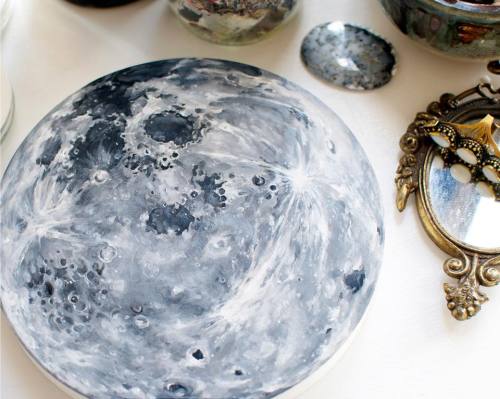Sometimes You Just Have To Write. Even If It’s Nonsense, You Are Spilling Black Truth Onto Empty Paper.
Sometimes you just have to write. Even if it’s nonsense, you are spilling black truth onto empty paper. Even if it’s not pretty, there is honesty in those desperate words. Even if it hurts, sometimes you just have to write. Because if you don’t, then who will?
Z.M. (via wnq-writers)
More Posts from Nmartinez930301-blog and Others
Every moment of light and dark is a miracle.
Walt Whitman (via wordsnquotes)
Seeing El Niño…From Space
First, What is El Niño?
This irregularly occurring weather phenomenon is created through an abnormality in wind and ocean circulation. When it originates in the equatorial Pacific Ocean. El Niño has wide-reaching effects. In a global context, it affects rainfall, ocean productivity, atmospheric gases and winds across continents. At a local level, it influences water supplies, fishing industries and food sources.
What About This Year’s El Niño
This winter, weather patterns may be fairly different than what is typical — all because of unusually warm ocean water in the east equatorial Pacific, aka El Niño. California is expected to get more rain while Australia is expected to get less. Since this El Niño began last summer, the Pacific Ocean has already experienced an increase in tropical storms and a decrease in phytoplankton.
How Do We See El Niño?
Here are some of El Niño’s key impacts and how we study them from space:
Rainfall:

El Niño often spurs a change in rainfall patterns that can lead to major flooding, landslides and droughts across the globe.
How We Study It: Our Global Precipitation Measurement mission (GPM), tracks precipitation worldwide and creates global precipitation maps updated every half-hour using data from a host of satellites. Scientists can then use the data to study changes in rain and snow patterns. This gives us a better understanding of Earth’s climate and weather systems.
Hurricanes:

El Niño also influences the formation of tropical storms. El Niño events are associated with fewer hurricanes in the Atlantic, but more hurricanes and typhoons in the Pacific.
How We Study It: We have a suite of instruments in space that can study various aspects of storms, such as rainfall activity, cloud heights, surface wind speed and ocean heat.
Ocean Ecology:

While El Niño affects land, it also impacts the marine food web, which can be seen in the color of the ocean. The hue of the water is influenced by the presence of tiny plants, sediments and colored dissolved organic material. During El Niño conditions, upwelling is suppressed and the deep, nutrient-rich waters aren’t able to reach the surface, causing less phytoplankton productivity. With less food, the fish population declines, severely affecting fishing industries.
How We Study It: Our satellites measure the color of the ocean to derive surface chlorophyll, a pigment in phytoplankton, and observe lower total chlorophyll amounts during El Niño events in the equatorial Pacific Ocean.
Ozone:

El Niño also influences ozone — a compound that plays an important role in the Earth system and human health. When El Niño occurs, there is a substantial change in the major east-west tropical circulation, causing a significant redistribution of atmospheric gases like ozone.
How We Study It: Our Aura satellite is used to measure ozone concentrations in the upper layer of the atmosphere. With more than a decade of Aura data, researchers are able to separate the response of ozone concentrations to an El Niño from its response to change sin human activity, such as manmade fires.
Fires:

El Niño conditions shift patters of rainfall and fire across the tropics. During El Niño years, the number and intensity of fires increases, especially under drought conditions in regions accustomed to wet weather. These fires not only damage lands, but also emit greenhouse gases that trap heat in the atmosphere and contribute to global warming.
How We Study It: Our MODIS instruments on Aqua and Terra satellites provide a global picture of fire activity. MODIS was specifically designed to observe fires, allowing scientists to discern flaming from smoldering burns.
Make sure to follow us on Tumblr for your regular dose of space: http://nasa.tumblr.com

Perfection never exists in reality, but only in our dreams.
Rudolf Dreikurs (via fyp-psychology)

😍👌



It’s an exhausting thing; being at constant war with yourself.
whtev-r (via wnq-writers)








Beautiful Nature & Anatomy Inspired Surreal Paintings by Trisha Thompson Adams
Artist Trisha Thompson Adams produces macabre and mystical art prints that depict nature and the human anatomy. Inspired by old folklore, astronomy and her dreams, the artist’s paintings lean away from bright colors and create mystery through scenes depicted in somber colors and strange subjects converged with realistic and whimsical concepts.
Adams’ artwork is artistically spiritual, celebrating nature through the human body and the flowers that bloom, as well as cosmic scenes. In order to sustain life, the body must be connected with nature, and her flowers entwined in the heart and ribcage symbolise new life that blooms forth. The universal balance of life and death, the struggle between humanity and nature, earthly and cosmic elements become the heart of her artwork. You can find her work in her Society6 and Etsy shop.
View similar posts here!
UP TO 35% OFF + FREE WORLDWIDE SHIPPING ON EVERYTHING - ENDS TONIGHT AT MIDNIGHT PT!
Keep reading

-
 neomavilda liked this · 1 year ago
neomavilda liked this · 1 year ago -
 mubarakalmtani liked this · 3 years ago
mubarakalmtani liked this · 3 years ago -
 humblechanelgurl liked this · 5 years ago
humblechanelgurl liked this · 5 years ago -
 naruniverse reblogged this · 5 years ago
naruniverse reblogged this · 5 years ago -
 astralbody reblogged this · 5 years ago
astralbody reblogged this · 5 years ago -
 akaaella reblogged this · 6 years ago
akaaella reblogged this · 6 years ago -
 sincerelyxlinc reblogged this · 6 years ago
sincerelyxlinc reblogged this · 6 years ago -
 oxfordsonnets reblogged this · 6 years ago
oxfordsonnets reblogged this · 6 years ago -
 postivevibeezforever reblogged this · 6 years ago
postivevibeezforever reblogged this · 6 years ago -
 thecanabianlifestyle-blog liked this · 6 years ago
thecanabianlifestyle-blog liked this · 6 years ago -
 sammantha9889 reblogged this · 6 years ago
sammantha9889 reblogged this · 6 years ago -
 sora-kinomoto reblogged this · 6 years ago
sora-kinomoto reblogged this · 6 years ago -
 sora-kinomoto liked this · 6 years ago
sora-kinomoto liked this · 6 years ago -
 urnaithi-archive liked this · 7 years ago
urnaithi-archive liked this · 7 years ago -
 noelshipschunjoe reblogged this · 7 years ago
noelshipschunjoe reblogged this · 7 years ago -
 kensaii liked this · 7 years ago
kensaii liked this · 7 years ago -
 tammylyons liked this · 7 years ago
tammylyons liked this · 7 years ago -
 marmeladenglasxmomente reblogged this · 7 years ago
marmeladenglasxmomente reblogged this · 7 years ago -
 sternenflug reblogged this · 7 years ago
sternenflug reblogged this · 7 years ago -
 the-hair-of-waves-ocean reblogged this · 7 years ago
the-hair-of-waves-ocean reblogged this · 7 years ago -
 kush-kupcakes reblogged this · 7 years ago
kush-kupcakes reblogged this · 7 years ago -
 literary-dumpster reblogged this · 7 years ago
literary-dumpster reblogged this · 7 years ago -
 ambitionbaby515-blog reblogged this · 8 years ago
ambitionbaby515-blog reblogged this · 8 years ago -
 sexymixedbitch reblogged this · 8 years ago
sexymixedbitch reblogged this · 8 years ago -
 inkscribbling reblogged this · 8 years ago
inkscribbling reblogged this · 8 years ago -
 everythinblvck liked this · 8 years ago
everythinblvck liked this · 8 years ago -
 sentimientosdeborbuja liked this · 8 years ago
sentimientosdeborbuja liked this · 8 years ago -
 assteadyasshegoes reblogged this · 8 years ago
assteadyasshegoes reblogged this · 8 years ago -
 maintainingthemysteryy-blog reblogged this · 8 years ago
maintainingthemysteryy-blog reblogged this · 8 years ago -
 colormerey reblogged this · 8 years ago
colormerey reblogged this · 8 years ago -
 assteadyasshegoes liked this · 8 years ago
assteadyasshegoes liked this · 8 years ago -
 ourvaliantlytenaciousbouquetus reblogged this · 8 years ago
ourvaliantlytenaciousbouquetus reblogged this · 8 years ago -
 jazzyflynaps reblogged this · 8 years ago
jazzyflynaps reblogged this · 8 years ago -
 lingeringfingers reblogged this · 8 years ago
lingeringfingers reblogged this · 8 years ago -
 gracieconrad reblogged this · 8 years ago
gracieconrad reblogged this · 8 years ago
You are the person I'll never stop looking for in a crowded place.
228 posts